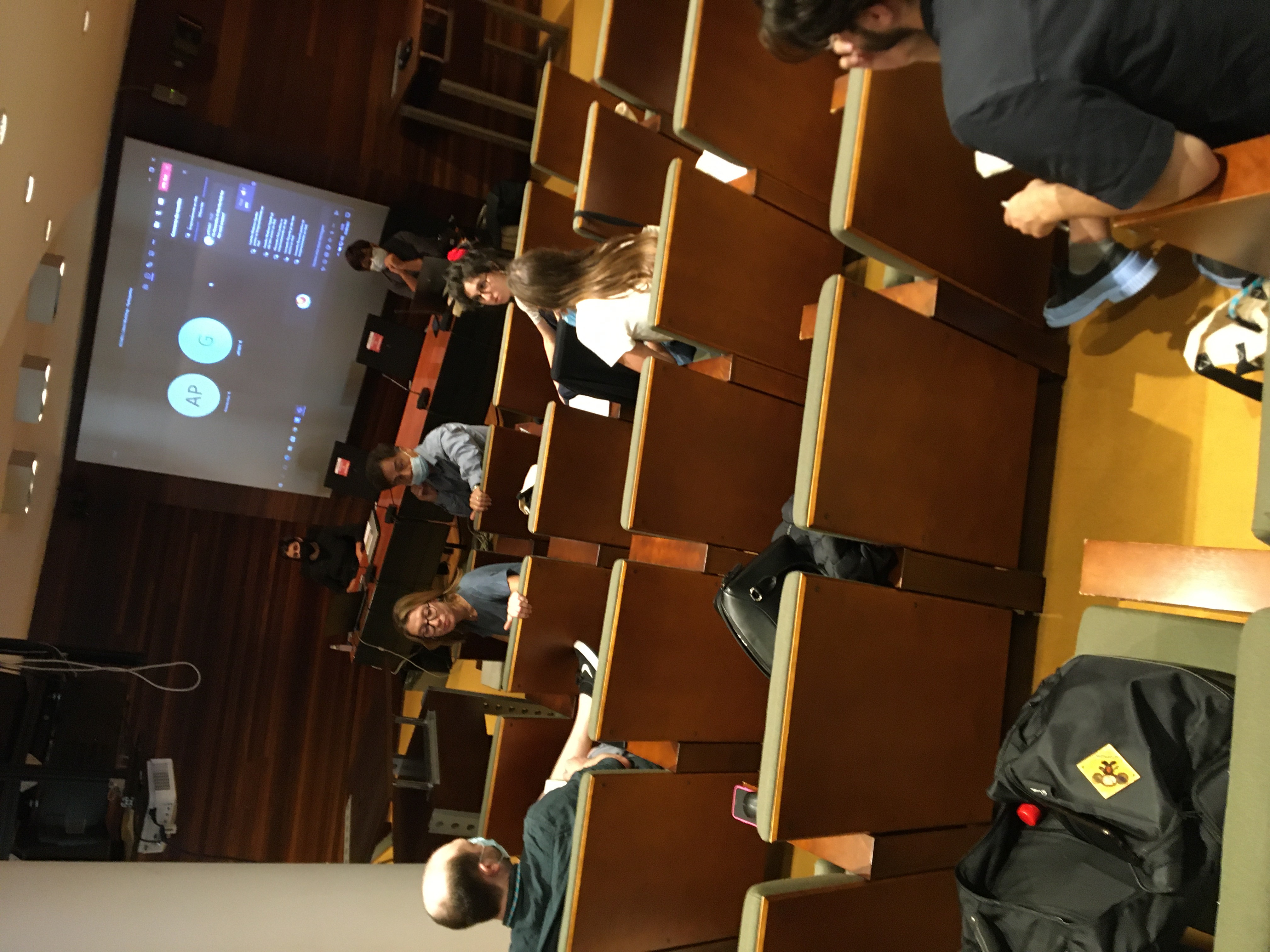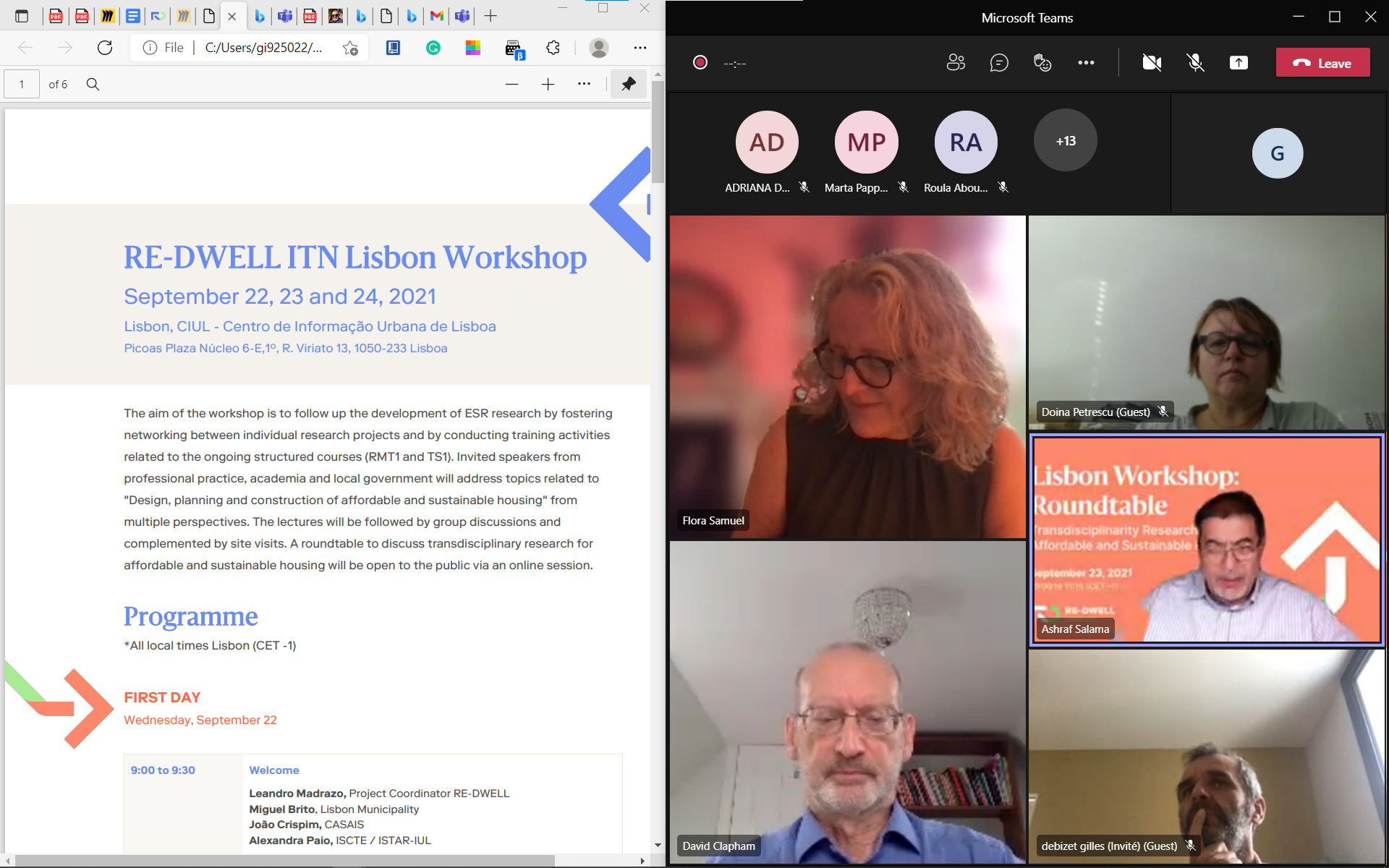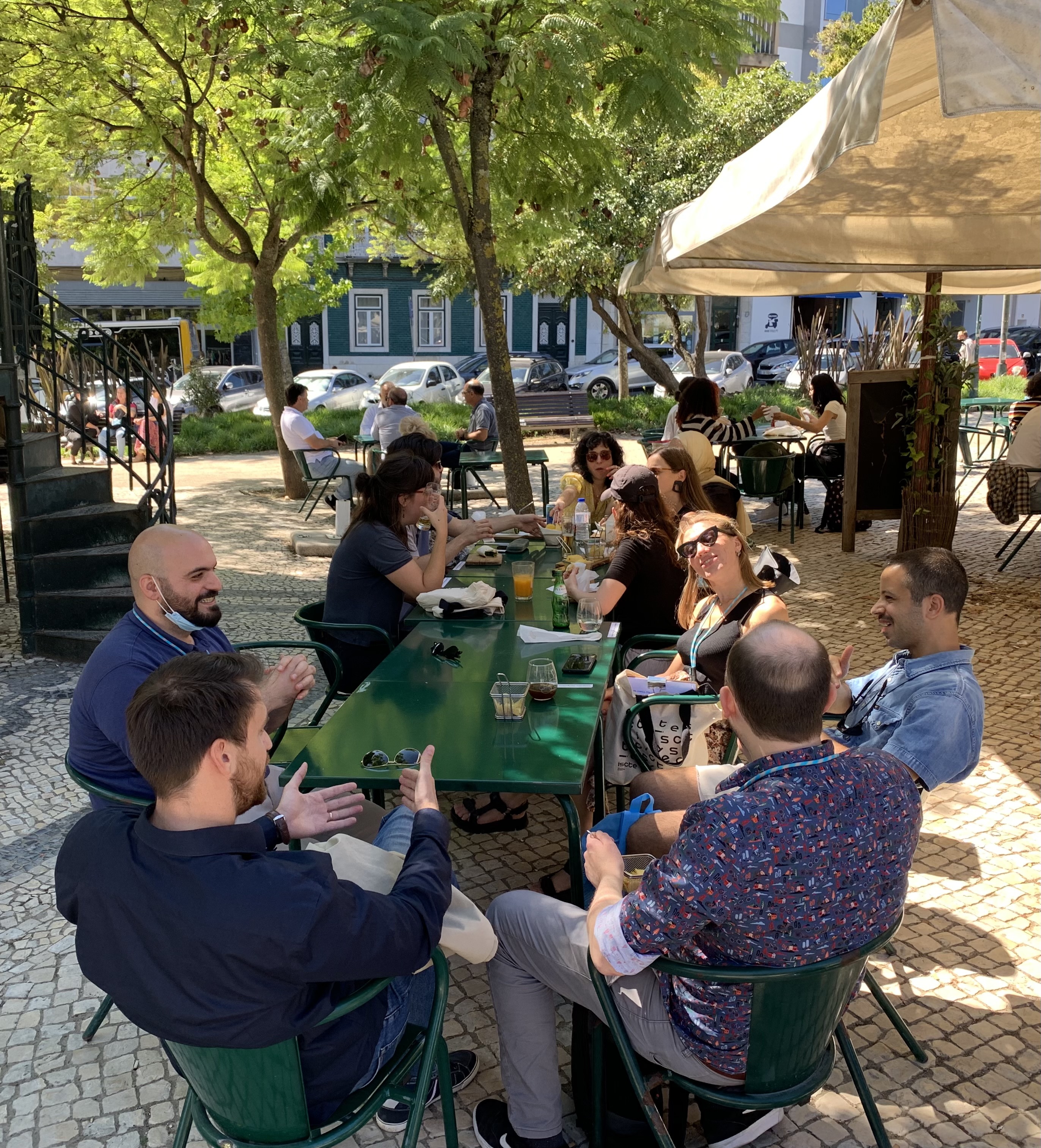We might think we are helping, but [Through Sustainability Lens] we might not!
Posted on 05-10-2021
Countless examples can reflect this title, right?
But today, I will write about a story of a woman living in a deprived area in Portugal.
Joana Pestana Lages, who is an architect and urban researcher in ISCTE, shared this story with us in the latest Lisbon Workshop. The story might sound simple and common, but [Through Sustainability Lens] it is mind-stimulating. Along with other inspiring guests’ speeches, this story deep inside me reemphasized my research goal to design social housing based on occupants’ needs and different lifestyles. In addition, to continuously communicate these needs to architects in practice. At the end of the day, the final product - [The House] - where people live, grow, cook, eat, rest, read, sing, play, cry, celebrate, heal and [recently work!] is designed by architects.
However, housing studies are commonly dominated by economists, as discussed in the workshop roundtable. That’s why our Re-Dwell transdisciplinary research is bringing economics, politics, and architecture to work together to tackle the ongoing housing issues in Europe.
So, just one minute ago in my introduction, I mentioned two things that we need to question:
The first one: Did it only happen [recently] that people work from home?
The second one: Do architects design all houses?
The answer to both questions is No.
No, for many reasons that differ depending on location, politics, finance, occupation, personal preferences, etc. In this blog, I will look through the lens of self-produced places ‘Slums’ where the story happens and where it is [The Time and People] who design and build! No architects, engineers, or contractors …
These were some of the words Joana Lages referred to before telling us the story. The story of a woman from Cape Verde who lived in a deprived area in Lisbon for many years. In her small house with a simple slow-paced lifestyle, she washes and reuses plastic wastes and knits it into plastic bags. She plants and raises food animals, securing work, revenue, and food from only one place [Her House]. Her life condition might be judged as insecure, informal, and particularly unhealthy when raising animals in a densely peopled area. Though from another perspective, it is more sustainable than many of us living in adequate residential areas. For instance, she uses minimum energy and transportation and produces minimum waste.
In this regard, Joana Lages raised a very interesting question: What would happen to this woman if she had to move to an apartment in a building which is, from our perspective, better for her? We would be ruining her lifestyle, her work, her income, and we would be creating her new financial obligations to pay for energy and transportation, etc.
We need to be aware that it is not just a house that costs a certain amount of money. It is not just a group of people to be re-allocated from one place to another. It is people’s lives.
It is a global issue. For instance, in Europe, there are more than 30 million slum dwellers. No one can deny the urgency of the various efforts and strategies used to tackle this issue or to upgrade substandard areas to incorporate their communities in the city gradually. But before doing so, it is important to listen! And to bear in mind an inclusive and participatory approach to tackle this.
We need to think: how can we give these communities a secure space to speak, care and express their needs? How should we listen to find creative solutions that respond to these various and challenging parameters?
It is not going to be easy, but it is possible.
References
https://www.dinamiacet.iscte-iul.pt/research-team/Joana-Pestana-Lages?lang=en
https://www.bbc.com/future/article/20190208-tackling-slums-by-making-them-better-places-to-live-in
https://www.dw.com/en/inside-europes-slums/a-18011677
https://www.npr.org/sections/thesalt/2013/05/21/185763979/african-cities-test-the-limits-of-living-with-livestock?t=1633387048627




